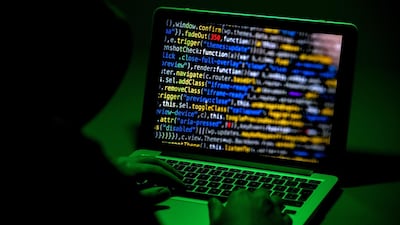The UK’s security minister refused on Wednesday to point the finger at China after intelligence officials warned that state-sponsored hackers were targeting research centres to try to steal Covid-19 vaccine data.
A joint US and UK warning of an increase in coronavirus-related espionage came amid concerns that the world had failed to unite behind a common enemy and countries were focused on their own national interests.
“We are not seeking to make attribution at this point in time,” James Brokenshire, the UK’s security minister told the BBC.
Hackers have targeted healthcare groups, pharmaceutical companies and research organisations to try to steal intellectual property, the US and UK issued a joint warning on Tuesday.
A Covid-19 testing laboratory in Brno, Czech Republic was last month reported to have been hit by a cyberattack which forced it to shut down its computer network.
The alert did not attribute responsibility to the advanced persistent threat (APT) groups – sophisticated and often state-backed hackers – but technology companies have reported a sharp rise in activity from groups in China where the virus originated.
“Organisations involved in Covid-19 related research are attractive targets for APT actors looking to obtain information for their domestic research efforts into Covid-19 related medicine,” said the joint alert from the UK’s National Cyber Security Centre (NCSC) and the US Cybersecurity and Infrastructure Security Agency (CISA).
The alert said the hackers were seeking information that “aligns with national priorities”. It followed a similar warning from Canada in March.
Hackers backed by the governments of North Korea, Russia and China have used the pandemic as lures in cyber-attacks that appeared to be part of long-term espionage campaigns, according to cybersecurity company FireEye.
It reported that a Chinese-linked group had ramped up its activities after a dip in early February when the government was concentrating its efforts on suppressing the source of the Wuhan outbreak.
Security officials said that efforts to find a vaccine were likely to be of greatest interest to state-backed hackers seeking to boost domestic consumption.
"In today's world, there is nothing more valuable or worth stealing than any kind of biomedical research that is going to help with a coronavirus vaccine," senior US intelligence official Bill Evanina told the BBC.
It comes despite a European-Union led effort to raise $8 billion (Dh29.38bn) dollars on Monday towards a global effort to find and distribute a global vaccine for a virus that is responsible for more than 250,000 deaths.
The US declined to be part of the fund-raising effort after a rift with the World Health Organisation (WHO) and is promoting its own research into a cure.
Former British prime minister Theresa May in an article on Wednesday criticised the international response to the crisis but said the emphasis should be on engaging with China.
The US has claimed that the source of the virus was a leak from a laboratory in Wuhan rather than the virus making the leap from an animal to human at a market in the Chinese city.
The suggestion has been criticised by the Chinese authorities. The WHO said the claim had not yet been backed up by evidence.
"The question should not be "whose side are you on" but how can we work together to engage with China to ensure that it adopts higher standards on intellectual property, carbon emissions, human rights and regional security," Mrs May, who was prime minister from 2016 to 2019, wrote in The Times newspaper.
“A highly infectious novel virus, life-threatening for many, might seem to be just the sort of thing countries would want to work together on. Instead, it has been treated as a national issue for countries to deal with alone.”

